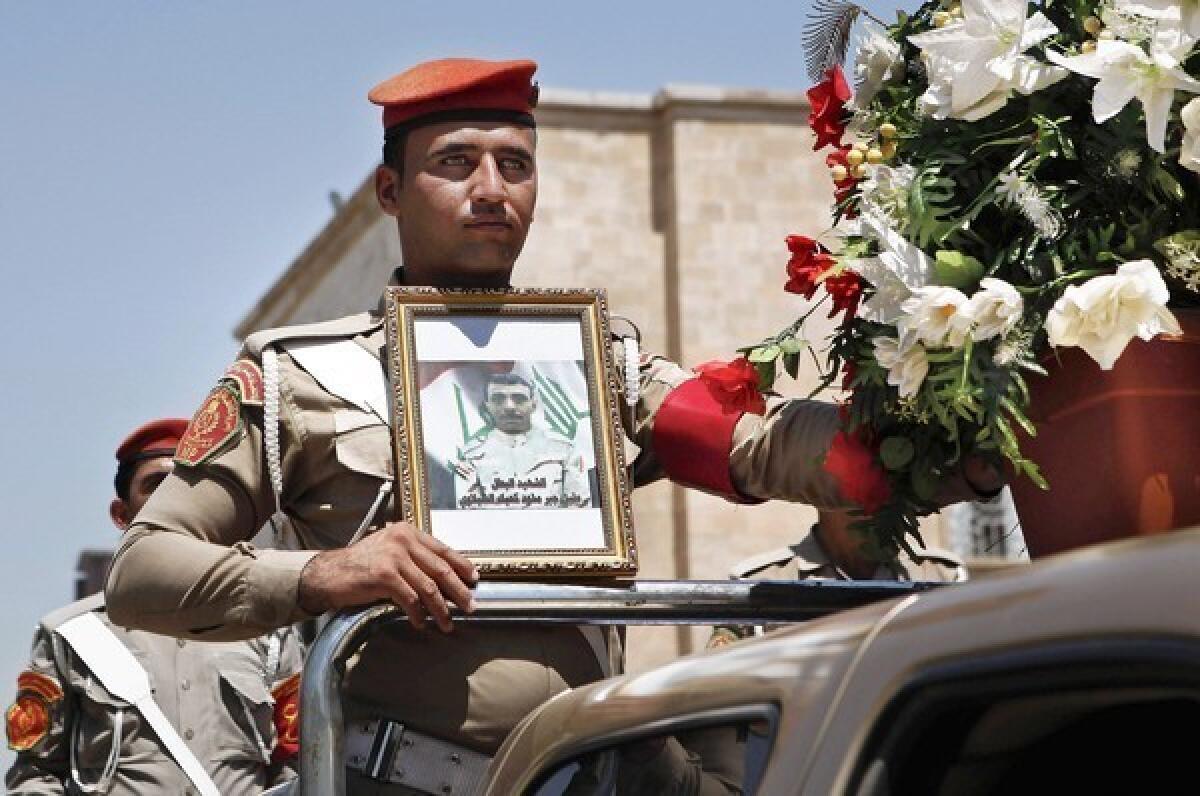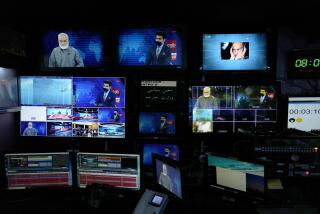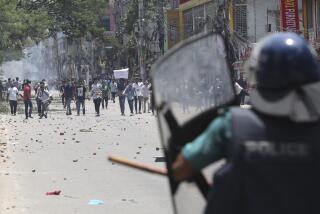Iraq shuts down 10 television channels

- Share via
BAGHDAD — The Iraqi government ordered 10 predominantly Sunni Muslim satellite television channels to cease broadcasting Sunday, accusing them of encouraging the sectarian unrest that left more than 200 people dead in a week of violence in northern Iraq.
The stations included the pan-Arab news channel Al Jazeera and well-known local satellite stations. The move reflected the elevated tensions in the country since fighting erupted last week between Shiite Muslim-led security forces and Sunni Arab protesters, raising fears of a new civil war like the one that erupted from 2005 to 2008, when U.S. troops were still in the country.
The ban was announced on state television and letters of notification were delivered to the television companies. It was not the first time the Iraqi government has shut the offices of satellite channels, including Al Jazeera and a well-known local station, Al Sharqiya. Similar closures occurred during the American occupation.
The accusation by the government’s media regulator came after a SWAT team, reporting to the prime minister’s office, stormed a protest camp in Hawija in northern Iraq and opened fire.
The commission announced that Al Jazeera, Al Sharqiya and eight other channels, only one of which was Shiite, had been ordered to stop operations. “The last two days the killing and sectarian actions happened because of the satellite channels encouraging and pushing them,” said Mujahid Albu Khair, an official at the government’s media regulatory body.
He denied that the decision was political or came in consultation with the prime minister, who under a 2011 court ruling has nominal supervision over independent commissions. Khair also said Al Jazeera had been warned it was at risk of getting into trouble.
Since the shootings in Hawija, Maliki has pleaded for calm but blamed the violence on outside influences, an allusion to Syria.
Journalists quietly expressed unhappiness with the commission’s decision. “We are conveying points of view. We are not adopting those points of view,” said a journalist with Al Jazeera, who asked not to be identified by name because of the political sensitivities involved.
A reporter from Al Sharqiya vowed to defy the government and said the company had already made arrangements that would allow it to send video to the channel’s offices abroad, and broadcast from there into Iraq. The reporter, Minas Suhail, said he was in Hawija when he received a call from the Baghdad military command informing him of the commission’s decision. Suhail told the officer he would keep working and said the officer warned him it was his own responsibility.
Suhail was unfazed by the prospect of being arrested. “I have been captured many times,” Suhail said, “It’s familiar for me to be captured.”
More to Read
Sign up for Essential California
The most important California stories and recommendations in your inbox every morning.
You may occasionally receive promotional content from the Los Angeles Times.










